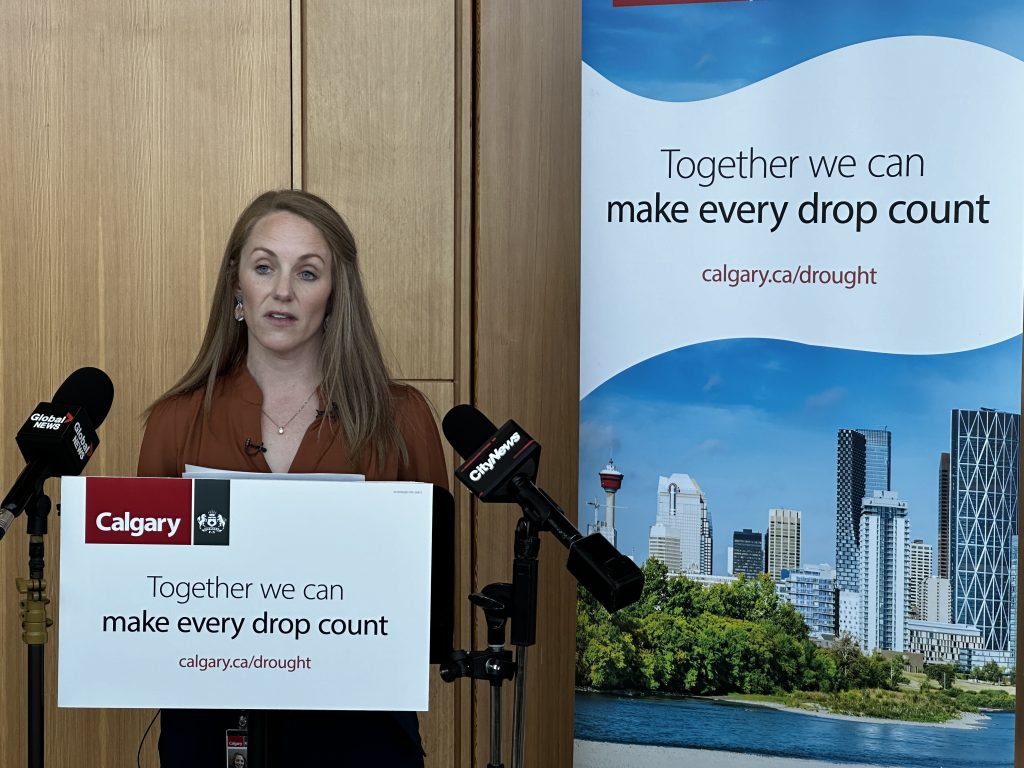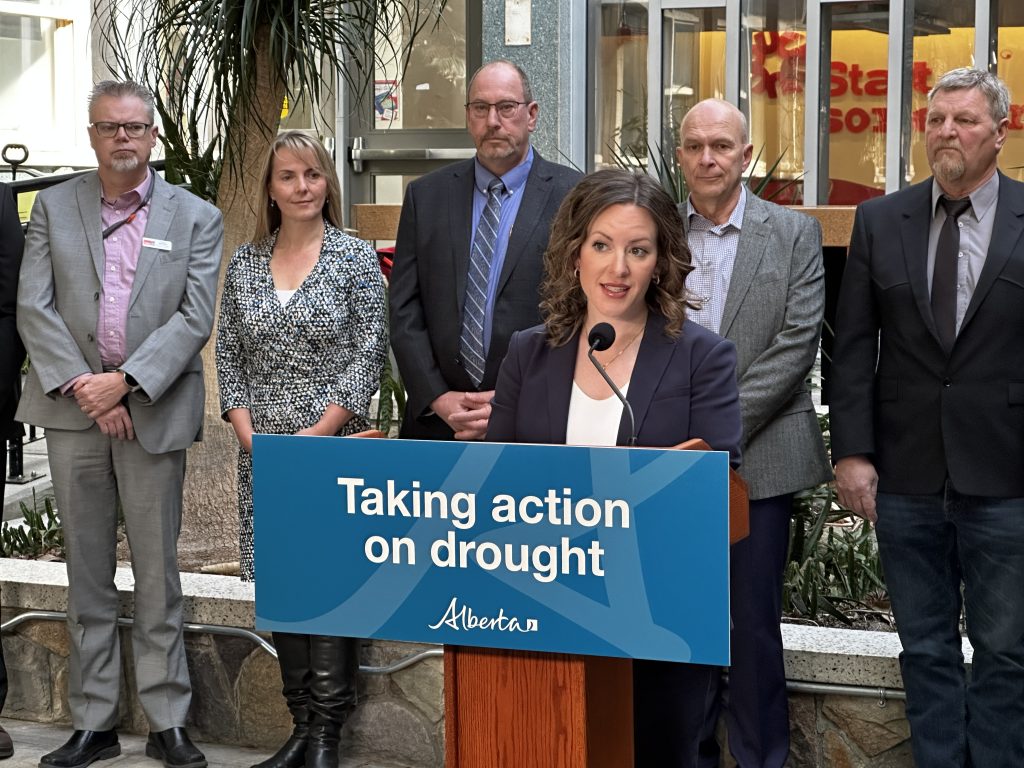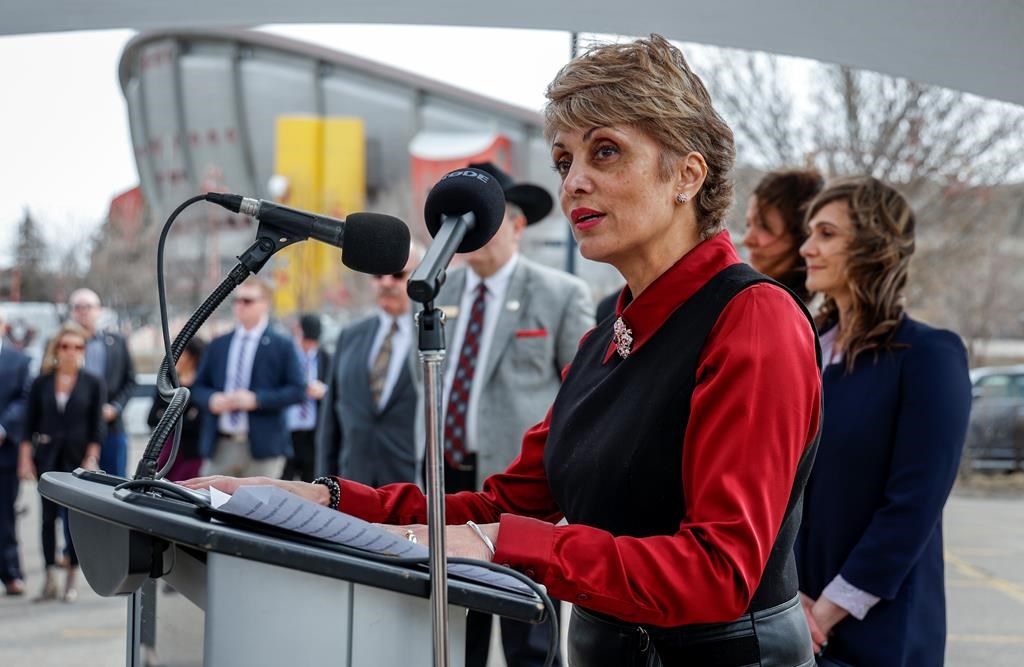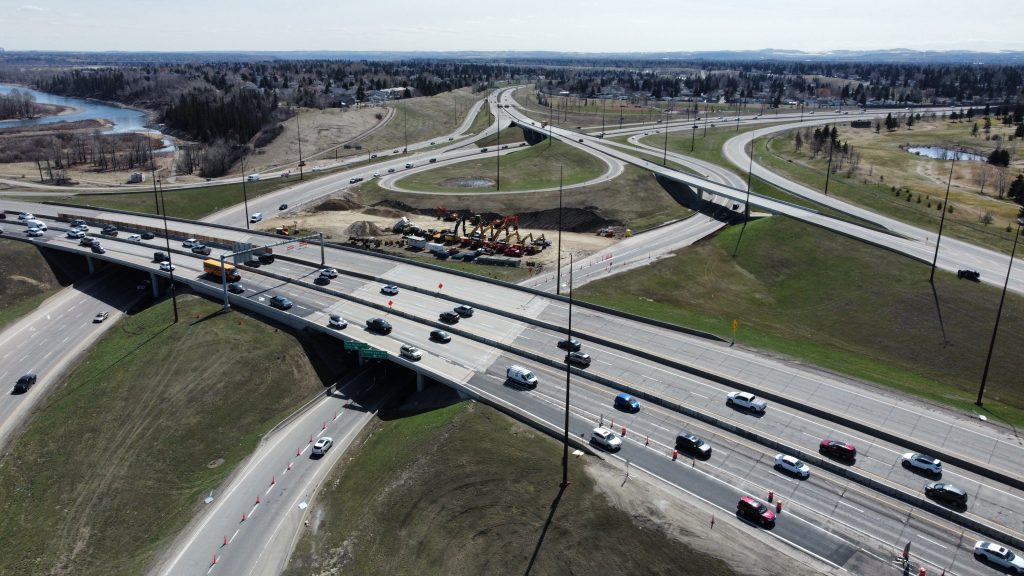Trucker protest thins out but remains in place at southern Alberta border crossing
Posted Feb 1, 2022 10:12 am.
Last Updated Feb 3, 2022 10:09 am.
There has been a breakthrough aimed at resolving the impasse in a protest blockade that has snarled cross-border traffic at the main United States border crossing in southern Alberta.
Chad Williamson, a lawyer representing truckers blocking access to the crossing at Coutts, says they have spoken with RCMP and agreed to open a lane of the highway in each direction.
Trucks and other vehicles have begun clearing paths.
Reports coming in that there is some movement happening at the Coutts blockade with protestors agreeing to open some blocked lanes. #yeg #yyc #ableg #Covid9ab pic.twitter.com/YUqxGY2dOP
— Courtney Theriault (@cspotweet) February 2, 2022
“The truckers finally feel like their message has been heard,” Williamson said Wednesday.
“In a tremendous show of good faith, they are reopening one lane each way to provide unimpeded access through the town of Coutts and across the border in both ways.
“That doesn’t mean the protest is over, but it signals what we hope to be ongoing cordial efforts to address the concerns of the people who have been involved in the movement down here in Coutts.”
Demonstrators began parking their trucks and other vehicles there on Saturday in solidarity with similar events in Ottawa and countrywide to protest COVID-19 vaccine mandates and broader public health measures.
The tie-up has stranded travellers and cross-border truckers for days, compromising millions of dollars in trade and impeding access to basic goods and medical services for area residents.
Police tried to peacefully break up the demonstration Tuesday, only to see others breach a nearby police barricade and join the blockade.
“Obviously enforcement is not the way that anyone wanted this to go,” Williamson said.
RCMP declined to comment on the lanes reopening.
According to Alberta Premier Jason Kenney, he had received reports that efforts to remove people from the Coutts Border Crossing were not smooth. At a news conference Tuesday, he said he was made aware of reports that “people aligned with the protesters” were “assaulting RCMP officers, including in one instance trying to ram members of the RCMP, later leading to a collision with a civilian vehicle in the area.”
NEW:
Premier Kenney says he's had reports of Coutts protestors assaulting RCMP officers, including trying to ram the RCMP which later led to collision with civilian vehicle in the area.
— Courtney Theriault (@cspotweet) February 1, 2022
“This kind of conduct is totally unacceptable,” Kenney said, adding “without hesitation, I condemn those actions.”
Kenney went on to ask “anyone who feels sympathetic to those engaged in this blockade” to stay away from the area and to not “further intensify an already difficult situation.”
“I implore people: if you feel strongly about the issues involved, I invite you, encourage you, and welcome you to find peaceful and lawful ways to make your point clear. You have democratic rights like freedom of expression, freedom of assembly, and freedom of speech and protest, which you can exercise in countless ways without creating public safety hazards and creating this kind of unlawful conflict,” the premier added.
RCMP report additional protesters
As teams of officers approached truck cabs Tuesday, some drivers began slowly peeling off and heading away from the crossing at Coutts, which is just north of Montana.
“We (began) to remove some vehicles from the protest area. A few left. I didn’t get an exact count of how many went out. And then we received notification that additional protesters were arriving on the scene and came around our secured area,” said RCMP Cpl. Curtis Peters.
“I don’t know how many additional vehicles or implements attended there.”
He said he did not know what would come next.
The blockade has snarled and stalled traffic at the border crossing since Saturday, leaving travellers and truckers on both sides stranded and locals unable to access goods and services, including medical care.
“What may have begun as a peaceful assembly quickly turned into an unlawful blockade,” RCMP said in a statement just before moving in on parked vehicles.
“We have been engaged with protesters at the Coutts border crossing in an effort to find a peaceful and safe resolution for all involved.
“We thought we had a path to resolution, the protesters eventually chose not to comply.”
1/2 In an effort to find a peaceful resolution, the Alberta RCMP had been negotiating with the protesters at the #Coutts border crossing throughout the day. While we thought we had a path to resolve this, the protesters chose not to comply.
— RCMP Alberta (@RCMPAlberta) February 1, 2022
The RCMP noted that while peaceful assembly is allowed, the demonstrators were contravening federal and provincial laws that forbid anyone from impeding access to critical infrastructure, stressing that those laws will now be enforced.
Trucks and other vehicles were parked at Coutts in solidarity with demonstrations countrywide and in Ottawa against cross-border truckers having to be vaccinated against COVID-19 to avoid quarantine and other public health measures.
By Tuesday morning, the line of trucks had thinned out but still stretched two abreast as far as the eye could see in chilling winds and -20 C temperatures.
Peters says some vehicles left peacefully but others, including tractors, sped through police roadblocks to join the blockade.
While Canadian flags flew from some trucks, others sported upside-down Maple Leafs and homemade signs and placards: “True North Strong Proud and Free.” “Mandate Freedom or Liberation is Coming.” “No Fear, Freedom Rules.”
Protesters also rented out a nearby bar, Smugglers Saloon, in Coutts to serve as an ad hoc rest centre and gathering spot.
Coutts Mayor Jim Willett has called for the end of the convoy. He said the protest was isolating the village’s 250 residents.
Mail delivery had been stopped and some children were forced to stay home from school Monday because their bus could not get into the community. There were reports of residents not receiving at-home medical care.
Related articles:
-
Mayor of southern Alberta village frustrated over border blockade by truckers
-
Alberta premier says truckers’ border blockade violates traffic laws and must end
-
Convoy blocking Canada-U.S. border in Alberta refuses to leave: RCMP
“I have no problem with people having a peaceful protest and even hindering traffic,” said Willett.
“But, as soon as you start making things as difficult as they have and you close off a vital piece of infrastructure, and the only commercial 24 hour port in the province when our province is so dependent on import and export with the United States, you have crossed a line in my mind.”
Cpl. Peters says some protesters have harassed Willett and his wife by showing up at their home and taking photos through their windows.
He says the behaviour is not very Canadian.
“The fight is not with the mayor and his wife,” Peters told reporters Tuesday night in Coutts.
“They should not be subjected to that kind of harassment in their own home.”
Truckers left stranded in the U.S.
Lovepreet Singh said he arrived in Edmonton on Tuesday after waiting in Montana with 150 other trucks and a full load of fruit and vegetables for more than two days.
Singh said it was a frustrating wait that put the health of some truckers at risk.
“That’s not how Canadians behave,” said Singh in an interview.
“There are people (who) have medical issues like blood pressure issues, thyroid issues, asthma.”
WATCH: CityNews’ Tara Overholt reports on truckers who have been left stranded on both sides of the border due to the blockade.
He said many of those waiting ate pizza every day from a nearby store while listening to a constant refrain from police to sit tight and wait.
Singh said he eventually detoured through icy roads in British Columbia at a cost of seven extra hours and $400 in gas.
Some truck drivers who left earlier risked driving through snow squalls, he said. One rig hit the ditch.
“We don’t make enough money to survive in these kinds of situations,” said Singh. “It’s even hard for us to pay all the bills and (provide) for our family.”
Meanwhile, CityNews also spoke to some truck drivers in Alberta who say they don’t understand the purpose of the blockade in southern Alberta.
WATCH: CityNews’ Laura Krause reports on the 5th day of blockades at the Coutts border
“There’s certain sites that require a vaccine. I’m not vaccinated. Okay, I don’t go there, it’s not the end of the world, there are other places to go,” said Emerette Wilson.
“A large portion of the truckers that are going out there are from Alberta, so it seems counterproductive to their cause to blockade somewhere where they have the most support,” added Cole Peterson.
Alberta’s opposition NDP is calling on the government to provide emergency aid relief to agriculture producers, trucker drivers, and all other Albertans financially impacted by the blockade at the Coutts border crossing.
“Every single industry in Alberta that relies on international trade with the United States has come to a stop. This blockade is holding our economy hostage,” explained Heather Sweet, Alberta NDP rural economic development and agriculture critic.










